Whither Karachi?
To overcome the Karachi crisis, people need to come together on a one-point agenda for establishing local govt system
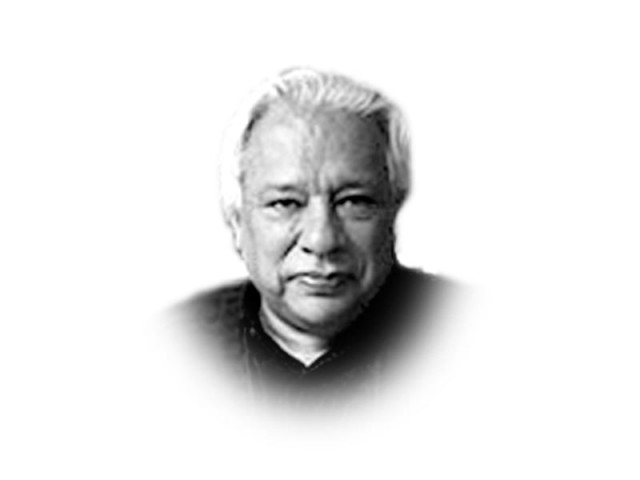
If the 2011 pre-census house count is to be believed, Karachi is the only place in Pakistan where household size has increased. This is not because of a rise in fertility rates but due to an absence of accommodation. The poor can only afford land on the fringe and living on the fringe has become more expensive than renting in the city because of the excessive cost and time involved in travelling, non-availability of jobs for women in the fringe, and the absence of schools and health facilities. A new dimension is the absence of security.
As a result of this, low-income settlements within or comparatively nearer to the city centre have densified to over 6,000 persons per hectare, making Karachi the third-most dense city in the world. These settlements suffer from severe overcrowding, with all its serious social and environmental negatives. Meanwhile, high-income settlements have ridiculously low densities of less than 200 persons per hectare. Despite these realities, there has been no public sector social housing in Karachi for the last two-and-a-half decades.
The city also floods but not because of climate change as some would have us believe. It floods because two of its main outfalls to the sea have been encroached upon by elite housing societies and one outfall by an expanding katchi abadi. The massive floods that affected Saadi Colony in 2013 were the result of officially approved encroachments on the natural drainage system by formal sector settlements. The floods will happen again.
The city is full of unlifted solid waste. Much of it is deposited in informal dumping sites near the creeks of the city, which they are polluting. A very large solid waste recycling sector, much of it informal, helps in taking care of over 30 per cent of the waste generated. No attempt has been made to integrate this informal sector into the city’s solid waste management system. Meanwhile, formal and informal developers pay the staff of civic agencies large sums of money to dump organic waste and debris to illegally reclaim land from the sea for development purposes. Also, contractors of waste pickers pay the KMC staff to not pick up solid waste from the neighbourhood kachra kundis so that salvageable material from them can be extracted and sent to the formal and informal recycling industry.
Karachi is perhaps, the only city in the world where the number of public transport buses has actually declined in the last 10 years. If it was not for the Qingqis and the rapidly increasing number of motorbikes, majority of Karachiites would not be able to get to work and back. However, there are no physically segregated lanes or parking spaces for motorbikes and there are also no pavements for pedestrians, even on the fast moving signal-free corridors. As a result of this, registered fatal accidents related to motorbikes and the absence of pavements and manned zebra crossings have increased by 39 per cent between 2008 and 2013. As a result of these conditions, women are the worst affected section of the population. Research shows that because of commuting related problems, many women do not work. Also, increasingly, their choice of a job is related to commuting convenience rather than their expertise or need.
The city has become physically ugly because of the countless haphazardly placed and low quality billboards. They dominate the cityscape and do not say much for the aesthetic sense and culture of our advertising and civic agencies. They obstruct pavements and road signs (where they exist) and trees are regularly cut down to facilitate them. They do not follow the bye-laws that have been developed for them and collapse in strong winds, causing injury and death. There are so many of them that a minibus driver commented, “Karachi has become a pimp for big business”. The cityscape is also dominated by a maze of electric and cable wires, which apart from being grotesque, are the cause of a large number of deaths even during very light rains.
Karachi’s most serious problem is livelihoods. The informal industrial activity in the low-income settlements on which a large section of Karachiites survive has shrunk since it cannot compete with Chinese imported goods. Technical and vocational education to produce skilled labour for potential industry and professions does not exist. In the absence of technicians and para-professionals, the numerous posh universities we are building are no better than castles built on sand.
Many development schemes for the city have been in limbo for over a decade. These include mass transit proposals and the S-III sewage disposal plan, in the absence of which, Karachi’s coastline and creeks are heavily polluted. Meanwhile, grand plans for the city’s densification and for speculative commercial and elite residential developments are being proposed and supported without a required environmental impact assessment or an urban design exercise.
The above issues can be tackled and overcome only through a sound system of local governance (irrespective of whether it is centralised or decentralised), even if sectarian and ethnic killings cannot be completely eliminated. In recent years, a lot of concerned young Karachiites and NGOs have initiated many programmes related to culture, education, health and awareness. This is a big positive. But, to overcome the Karachi crisis, they need to come together on a one-point agenda for the establishment of a local governance system in the larger interest of the city and the province of which it is the capital. Hopefully, as a result of such a system, a Karachiite will not die due to a building collapse, fire, an absence of medico-legal facilities and unaffordable health care. In addition, he/she will be able to get an NIC, a death and birth certificate, get his/her child admitted to a reasonable school and his/her mother to a hospital, get a friend or relative released from illegal police custody, and get to solve family and property related issues without paying a bribe or seeking patronage from religious or ethnic groups.
Published in The Express Tribune, October 3rd, 2014.
Like Opinion & Editorial on Facebook, follow @ETOpEd on Twitter to receive all updates on all our daily pieces.

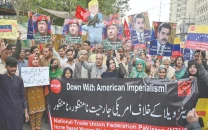
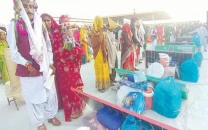

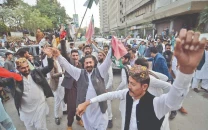
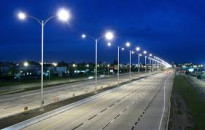













COMMENTS
Comments are moderated and generally will be posted if they are on-topic and not abusive.
For more information, please see our Comments FAQ